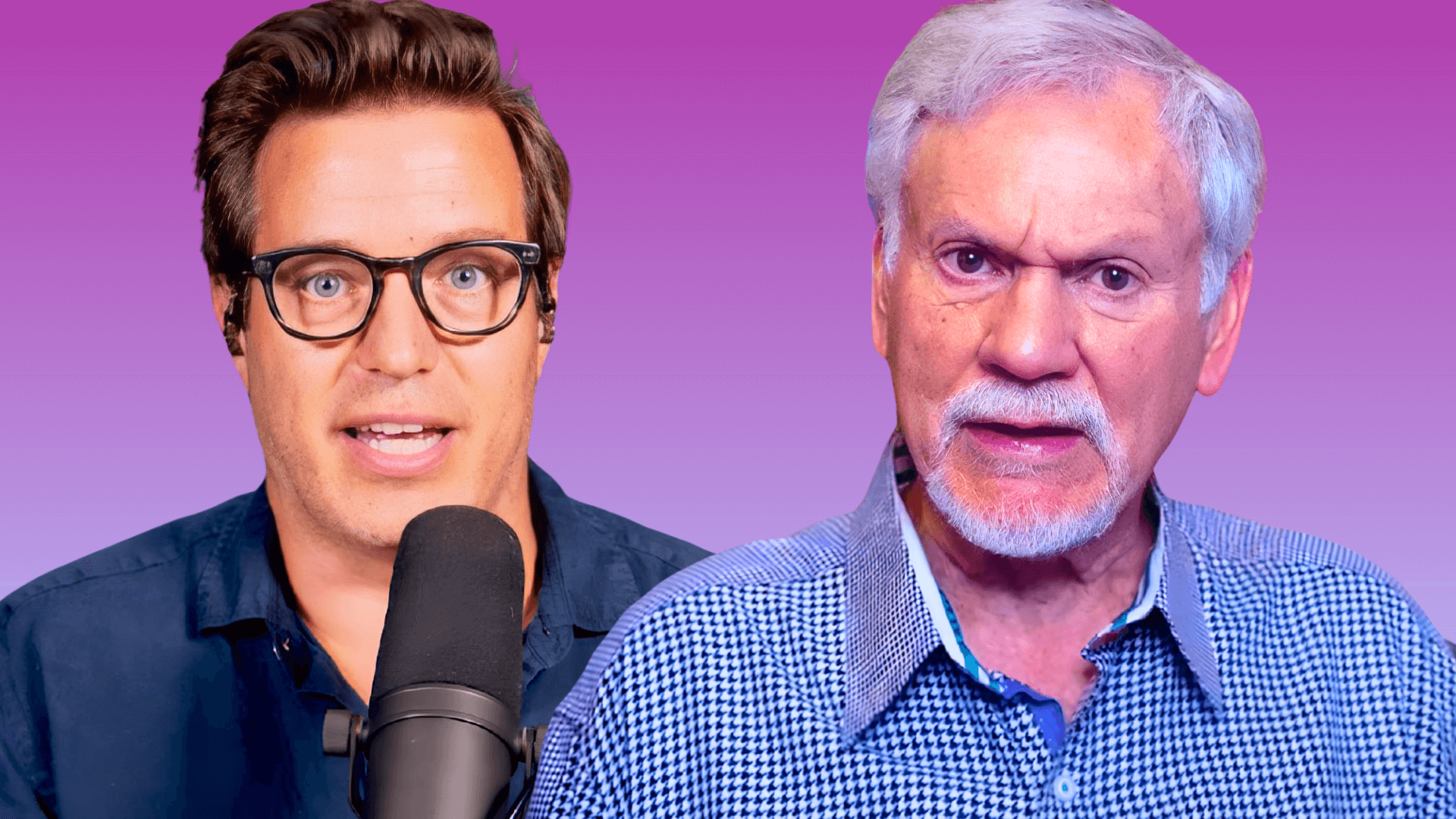Cal Newport revisits the show to talk about deep work and how focus can make you not only more productive and effective, but happier and more neurologically healthy.
The Cheat Sheet:
- What’s the difference between shallow work and deep work?
- Why is engaging in deep work so important not only to personal satisfaction, but to your very survival in a ruthless marketplace?
- Learn how to schedule deep work into your own life.
- Discover what you can eliminate from your life to make deep work more natural.
- What the heck does orthogonal mean?
- And so much more…
[aoc-subscribe]
[xyz-ihs snippet=”VDS”]
Last time he was here, Assistant Professor of Computer Science at Georgetown University and author Cal Newport debunked the “follow your passion” mantra and gave us a practical strategy for building a working life we love as detailed in his book So Good They Can’t Ignore You: Why Skills Trump Passion in the Quest for Work You Love.
In episode 515 of The Art of Charm, Cal talks to us about the difference between shallow work — what most of us experience — and deep work — a focused approach that makes us happier, healthier, and more productive — as outlined in Deep Work: Rules for Focused Success in a Distracted World, his latest book.
Download Episode Worksheet Here
More About This Show
Productivity is a tricky bag. Some of us consider ourselves productive when we can accomplish a workout at the gym and grocery shopping in the same day — but we’re always wondering how the hours keep flying by without notice. And then there are those seemingly superhuman overachievers who manage to squeeze every second out of every day at their job and still have time left over for a fruitful personal life.
Cal Newport, author of Deep Work: Rules for Focused Success in a Distracted World, would say the difference between the two may be in the former being occupied mainly with shallow work, and the latter employing deep work.
Shallow Work Vs. Deep Work
Just so we have a reference point, here’s what Cal considers the difference between shallow work and deep work:
- Shallow Work: Noncognitively demanding, logistical-style tasks, often performed while distracted. These efforts tend to not create much new value in the world and are easy to replicate. (Low value)
- Deep Work: Professional activities performed in a state of distraction-free concentration that push your cognitive capabilities to their limit. These efforts create new value, improve your skill, and are hard to replicate. (High value)
Why Deep Work Matters
If you want to be more than just another cog in the machinery, it pays to find ways to engage yourself in deep work. But this isn’t only a matter of personal satisfaction, but survival. “The market is ruthless,” Cal says. “If you are not doing something that is rare and valuable, it is not going to be valued much by the market and you’re in trouble.
“So we have all this chatter out there about how it’s important to have a brand online and serendipity and be connected by the network and you get to moderate your social media presence and be easily accessible. None of those activities are rare and valuable. None of them are something that a 22-year-old right out of college could not also spend his or her whole day doing. If that’s what’s eating up most of your time, you’re in an incredibly fragile and somewhat dangerous position. It’s only [in] deep work, which is where you push your brain and your existing skills to their limit, that you’re actually producing real value — things that the market actually values.”
The Deep Work Hypothesis
If you feel like your ability to concentrate on any given task enough for it to qualify as deep work is diminishing, you’re not alone. Thanks to the ever-mounting number of distractions we have available in the world today — from smartphones to social media to streaming media — focusing long enough to engage in deep work is increasingly difficult and rare just as it’s becoming increasingly valuable to our economy.
Those of us who can manage to cultivate the ability to perform deep work will have an incredible advantage over the majority of the existing workforce.
“I’m not about saying distractions are bad,” Cal says. “I think we’ve forgotten, however, how valuable their opposite is. We’ve forgotten how much value is produced by deep work. Not only does it produce a lot of value, but it’s producing an increasing amount of value.”
Many who live by means of so-called shallow work will find themselves at a loss as automation and outsourcing eliminates their livelihoods. But those who can pivot toward deep work will thrive and reap the benefits of their increased value to the marketplace.
A Little Bit of Deep Work Goes a Long Way; A Lot Goes Longer
“If you haven’t been practicing concentration, you don’t really know what true concentration really feels like,” says Cal. “The people who cultivate it, they’re not just a little bit more productive than everyone else; they’re massively more productive. These are the people who are stars in their fields.”
Deep work isn’t easy. If you’re doing it right, mental strain is inevitable — but necessary for getting better. It’s making use of the deliberate practice principle (as we discussed with expertise researcher Dr. Anders Ericsson recently on the show) that requires stepping out of one’s comfort zone to improve.
“The better you are at deep work, the more efficiently and quickly you can learn complicated things.”
Embrace Boredom
For those of us who are constantly going from app to app or browsing between Facebook, Twitter, and clickbait throughout the day, learning how to really concentrate enough to engage in deep work can be a daunting process. Because we’re so accustomed to this bombardment of stimuli, we need to reacquaint ourselves with its absence — or learn to embrace boredom, as Cal says. But don’t expect it to be easy.
“If most of your life is spent in fragmented attention, you are hurting your ability to concentrate when it’s time to concentrate,” says Cal. “I think — and I have anecdotal evidence to support — that you can get that back, but it’s going to be hard work.”
How Much Focus Do We Need for Deep Work?
“The differentiating factor in the 21st century is going to be those who can focus and those who cannot,” says Cal. So if we’re trying to regain our ability to focus, how much focus do we need?
“It depends on what you do for a living and what other demands you have,” Cal says. “At one extreme, you have people who do nothing but deep work, like professional fiction writers. And they’ll do five hours a day every day and that’s it. On the other hand, you have people who are maybe in a management position and they have to balance their deep work time with other obligations they can’t get out of, so maybe it’s more like five to 10 hours a week — but they’re really intense, deep hours.
“How much you do can depend on the realities of your job. But the better you are at it, the more you’re going to get out of it. And you need it happening on a regular basis.”
Listen to this episode of The Art of Charm in its entirety to learn more about the groups that will have an advantage in the deep work economy, why multitasking is dead, how spending the same number of hours in deep work as you would in shallow work can double your results, why open office spaces and Slack don’t facilitate deep work, what valuable positions don’t really require deep work (spoiler: you’re probably not in one), what a metrics black hole is, the positive neurological effects of focus, how a life committed to depth can be satisfying to the business and personal life, why a life of fragmented attention is conducive to anxiety and depression, the passive and active ways you can begin paving a path to deep work, what to eliminate from your life to make deep work more possible, and lots more.
THANKS, CAL NEWPORT!
Resources from This Episode:
- Deep Work: Rules for Focused Success in a Distracted World by Cal Newport
- So Good They Can’t Ignore You: Why Skills Trump Passion in the Quest for Work You Love by Cal Newport
- Other books by Cal Newport
- Cal Newport’s website
- Adam Grant | Give and Take: How Much Can You Give? (Episode 311)
You’ll Also Like:
- The Art of Charm Bootcamps
- Best of The Art of Charm Podcast
- The Art of Charm Toolbox
- The Art of Charm Toolbox for Women
On your phone? Click here to write us a well-deserved iTunes review and help us outrank the riffraff!




